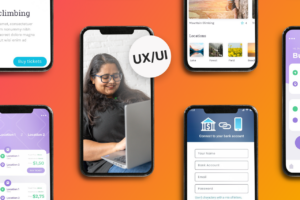‘Am I too old to learn how to code?’ This may just be the most common question among aspiring programmers, not least because those asking it range in their age from late 20s to early 70s (and sometimes beyond!). Because it is so frequently asked, it is also frequently answered – indeed, Google will yield dozens of blogs, articles and videos on just that topic.
The reason I wish to add another entry to that abundant list, is that most of the material seems to me largely motivational in nature, always pushing the same view that age is just a number and that learning to code can only lead to good things. There is a place for that sort of thing, but I feel that someone looking for a more realistic evaluation of his/her educational prospects may walk away disappointed.
Being as we are a school, it’s appropriate for us to try and fill that gap, and approach the question pragmatically, from a practical point of view.
So let us first acknowledge that this question can be read to mean Can I learn how to write code?, but also Can I have a career in programming?
These are two separate questions, which we will consider each on its own terms. We will make no assumptions about how old the person asking this question may be, but will present arguments that become more rather than less pertinent the older a person gets.
#1. Am I too old to learn to code?
The short answer to this one is a resounding no, and it doesn’t take a motivational speaker to tell you that. At its core, coding is about logic and problem-solving, and humans possess those faculties at all ages. Moreover, not all coding is especially complex, and it’s certainly not something only geniuses can do, so even if age makes a person a bit slower when learning, that in and of itself is hardly a critical impediment.
What does hold true is that, as a person grows older, they tend to have more things to juggle in their lives. A 20-year-old may be able to devote their minds exclusively to their studies, but later in life things like family, health and finances become more pressing – and this is typically a more concrete obstacle for older people who wish to learn to code.
Thus, while it is certainly possible to learn code at a later age, it usually requires extra commitment, as there will be other life-circumstances to be negotiated alongside the learning process. How to deal with these circumstances will ultimately be up to you (there are no ‘rules of thumb’ for life!), but know this – there are resources out there to help you. Aside from bootcamps like ours, there’s a ton of free tutorials on learning to code, and gigantic online communities that are always happy to help out beginners.
As long as you’ve got your life reasonably in order and you’re willing to commit yourself in earnest, there is no age-limit for learning how to code.
#2. Am I too old to have a career in coding?
The answer to this question can vary wildly depending on your background. There are many career-paths that are enhanced by picking up coding skills. Thus, if you previously worked in marketing, in finance or in sales, learning to code will put you in a strong position to start a different job in the same field, but one with better pay.
However, suppose that you wanted to switch careers completely, and start afresh in the field of pure programming. The job market won’t have a problem making room for you – there is still a substantially greater demand than supply for programmers – but how easy (or hard) will it be to find a job?
If we’re talking about salaried work, then not as easy as it would be for a 21-year-old, that’s sure enough. A lot of tech companies like to hire programmers with a view towards grooming them, i.e. training them internally to become senior developers working on their projects long-term. In addition, younger people typically have more modest salary requirements. This is not to say that older applicants won’t find employment, but it will definitely be a bumpier road if you’re aiming to end up at a shiny Google office.
On the other hand, past a certain age it actually becomes easier to find work in the freelance market, especially once you’ve picked up a little bit of experience. This is because companies hiring a freelancer will be taking a risk on them – and most people feel safer placing their trust in someone aged 40 than in someone aged 20, especially when misplacing that trust could cost them thousands or tens of thousands of euros.
In any case, always bear one thing in mind – having learned a new skill, and/or switched careers, is something that demonstrates passion and drive, in a way that simply emerging out of higher education does not. It shows that you didn’t just end up where you are by accident, but you stood up and had the courage to confront something you didn’t know and change who you are as a professional. Trust that an intelligent employer will know how to recognise that.
Conclusions
It can be hard to sift through all the white noise in tech, from the motivational slogans painting a rose-tinted picture of the industry, to the stereotype of coders as nineteen-year-olds making millions from inside a basement.
Nonetheless, the motivational talk in this case is not baseless: it is indeed possible to learn how to code at a later age, and, allowing for some variations of circumstance, it is possible to have a career as a programmer.
In any case, learning to code is exactly the sort of thing that helps keep the brain young. It activates neural paths, it improves short-term memory, and it gives you a skill that is useful to the world. If you’re worried you may be too old to code, then learn code as a way to be younger.






